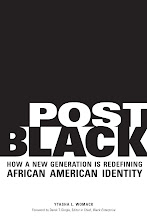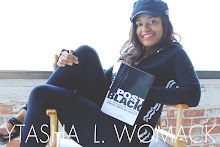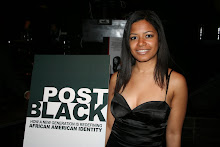
Quinn Kareem Rallins is a community organizer with the Brockton Interfaith Community. A Rhode Scholar Finalist and recent grad of Morehouse and Oxford University, he's focused on empowering community residents. He also studies movements of the past including the fights for Civil Rights and Womens Rights to better understand the challenges of today.
YLW: When you tell people that you're a community organizer how do they respond?
QKR: The major response I get is that people don't understand. They wonder what exactly is it that you do? Who exactly do you work with? There are different forms of organizing. Issue based organizing. Faith based organizing. The organization I'm with works is a faith based organization. It's more complex than people understand.
YLW: Are there other African Americans organizing with you?
QKR: I'm the only one.
YLW: But you've met others?
QKR: Yes, I've met others. There are a lot of organizations. But there aren't a lot of people of color.
YLW: What do you attribute that to?
QKR: Once you graduate you take out a $100,000 in loans, there's a need to pay that back. I have a lot of friends who have to help out their family. I'm not in any debt, so I have a certain level of flexibility in terms of how I pursue dreams, and I'm not financially constrained. Plus, [being a community organizer] is not financially lucrative.
YLW: I wonder, too if people know to view it as a career option. Do you feel that President Obama has inspired more people to look at community organizing as a profession?
QKR: It's more organizing going on than people realize. People have been organizing for decades. The Civil Rights Movement is just one example. However, Barack Obama illuminated it as a profession and showed that working for the people can be a part of your career.
YLW: Do you think people in Gen X and Y are committed to service?
QKR: I think for the younger people it's ingrained or possibly artificially ingrained. In Chicago, we had 40 hours of community service we had to do in high school. In college you do it to boost your resume. People do it, but I don't know if it's ingrained. It's being done,but I don't know how you can gage sincerity.
YLW: Tell me about the work you're doing now?
QKR: I'm organizing in Brockton, Ma. We organize around a range of things - health care, housing . One of the priorities is working on health care and foreclosures. Brockton has one of the highest foreclosure rates in the state of Massachusetts. Forty four out of every 1,000 homes are in some state of foreclosure. I'm working in a community which is highly minority. A lot of Cape Verdians, Latinos, African Americans, West Africans. It's a small city with big city problems.
YLW: What role do you play?
QKR: I take the stories that people have, the pain that they have. The stories that people have illustrate the problem within the community. A problem might be lack of diversity within administration, say the the city council, the teachers, etc. Within the problem, we focus on a specific issue. So if it's a problem of diversity then we work on a specific issue, getting more people of color.
With foreclosures, the specific issue is to get more of the bailout money or TARP money to go to homeowners who are unemployed. Right now most of the money goes to banks to do modifications or have incentives for them to assist homeowners. We're trying to get a portion of the money to go directly to homeowners to help pay their mortgage while they're unemployed, and when they're employed they can get it back.
YLW: What's the difference between community organizing and activism?
QKR: Activist make demands. We need water, we need affordable housing. But organizing doesn't just make demands on the government. It's about making people the part of the solution. Government doesn't have all the solutions. So we don't come into meetings making demands, we have come in with proposals.
YLW: Many people probably use activist and organizer interchangeably. I know I have. But there's a difference in strategy. What's the organizer process?
QKR: We listen to the stories, we listen to their pain which tells us the problem. After we go to the overall problem, then we find out which issues we want to tackle. You can't tackle everything. Something that's feasible. Then we go from the issue to research. So if it's finding teachers of colors, then you find out where has this been implemented? How did it work? Then you go to action. Meeting with public officials to get their commitment.
YLW: What have you learned?
QKR: I've learned it's a big difference between the world as it is and the world as it should be. It takes a large degree of honesty and a hunger for power to move from how the world is to where it should be. A lot of times we want to recognize how things work, the realities of how it works. But to improve the world, you have to be very real about how it is. I found that organizing puts the power back into people's hands. But power almost has a negative connotation.
YLW: How so?
QKR: People have misused power for so long. Power is good. If you're going to change the situation , you have to see power as something that's good. But we need a good balance of power - the legislative, judicial, and executive branch. In our government, people don't see themselves as the 4rth level of power. People need to see public officials as their employees. They're working off of your tax dollars. They can't make decisions without your say so. You have the power to elect or reelect them.
YLW: Any other insights?
QKR: Just recognizing the power of people. Just recently, it was illustrated in the 08 election. It was witnessed in the Civil Rights movement. But it's something powerful that can happen when the masses get on the same page.
YLW: It seems as if people are having more conversations about service. More volunteerism, fundraisers, etc.
QKR: There's been an emphasis on public service for the past few years, the need to work on the ground and give back. Some people have a top down approach, but increasingly people are trying to have a bottom up approach where they work in the communities to get things changed. It's been going on for a long time, but it was a certain level of illumination towards it.
YLW: How did you get involved in community organizing?
QKR: I went to Morehouse. I was in college when Hurricane Katrina hit. I was working with Katrina on the Ground. I along with some colleagues from Morehouse were working with organizers in New Orleans to help rebuild the community. We did things including rebuilding houses to working with residents. It was a different approach to solving problems. Organizing is different from advocacy. In advocacy, the people don't even have to be there. But its an entirely different thing to get people to talk for themselves. It's different from social service.
YLW: How so?
QKR: In college I worked with soup kitchens and helped where needed. But at the end of the day you have to stop grabbing the weed at the top. Do you want to get at the root of the problem? Then you have to dig in and get it at the root. Why do these things exists? Why did the foreclosures take place. At the same time while we're focused on the short term crisis of getting people in their homes, we have to go back and make sure this doesn't happen again.
YLW: How did your education at Morehouse and Oxford shape your views on working in communities?
QKR: Morehouse is an institution that is constantly focused on developing the whole person. The president [of the college] said I want you to be so concerned about the plight of others that you can't sleep at night. HBCUs have traditionally been schools that created concerned people in the community. I spent as much time in the community as I did in the classroom in undergrad. Spending time in public schools, summers in Malaysia. Doing a campaign against capital punishment. I found a school that really embraced community work and leadership.
Oxford helped me to really analyze policies. This goes to getting back to the root of the problem. Whey do these health care problems exist? When was reform tried before? When did it fail? Right now the Senate is about to debate health care. How can it pass? If if fails, why? If it is to succeed what things have to be implemented for it to pass in the future?



No comments:
Post a Comment